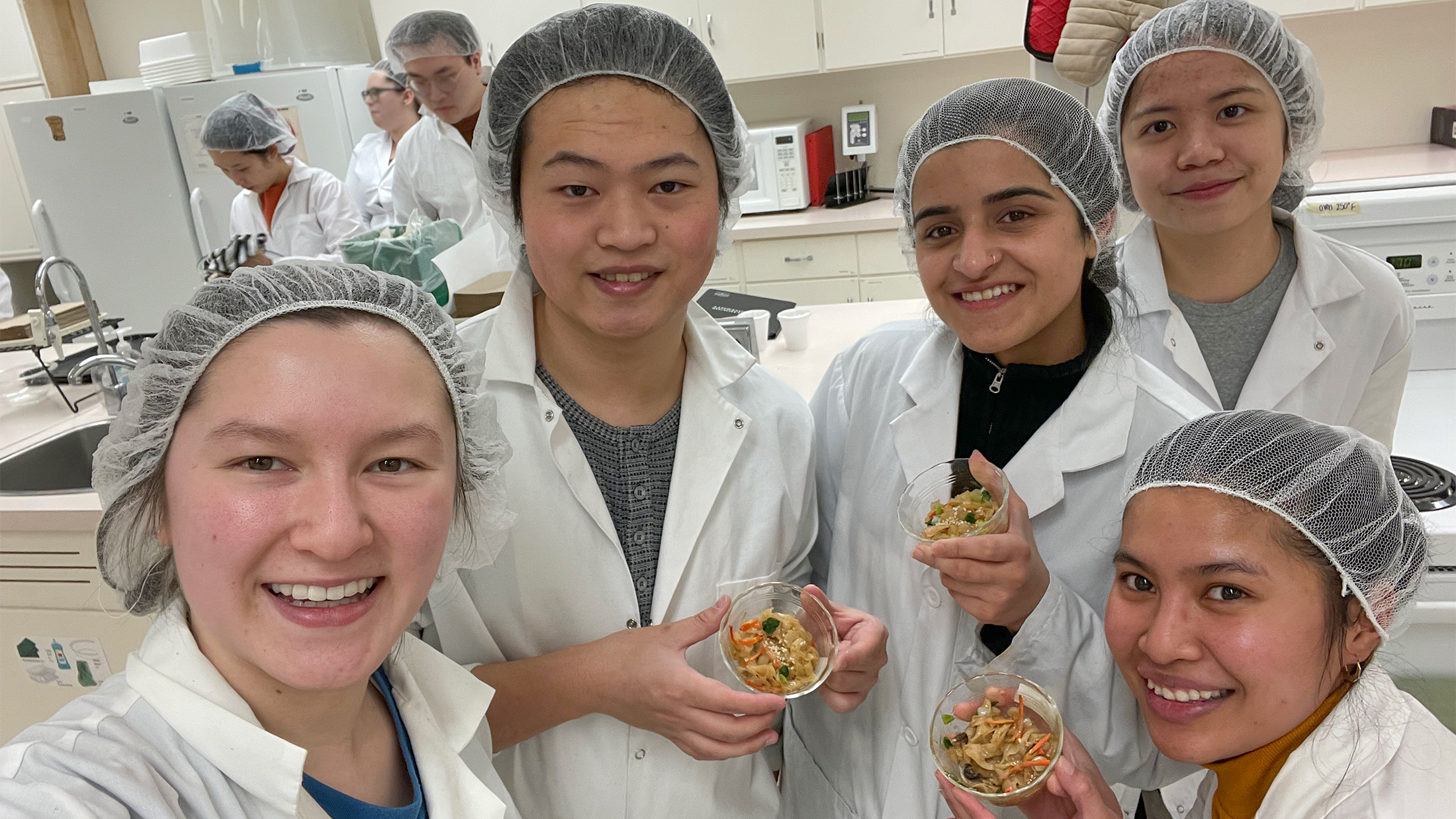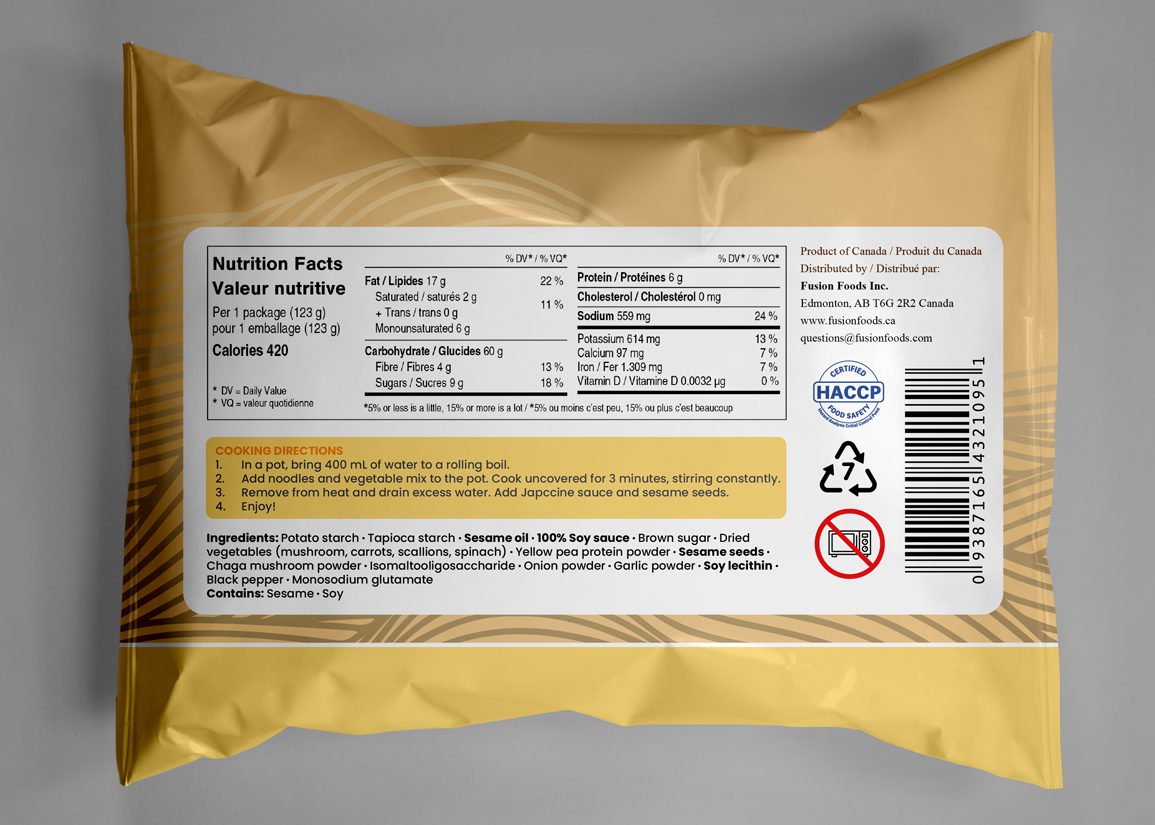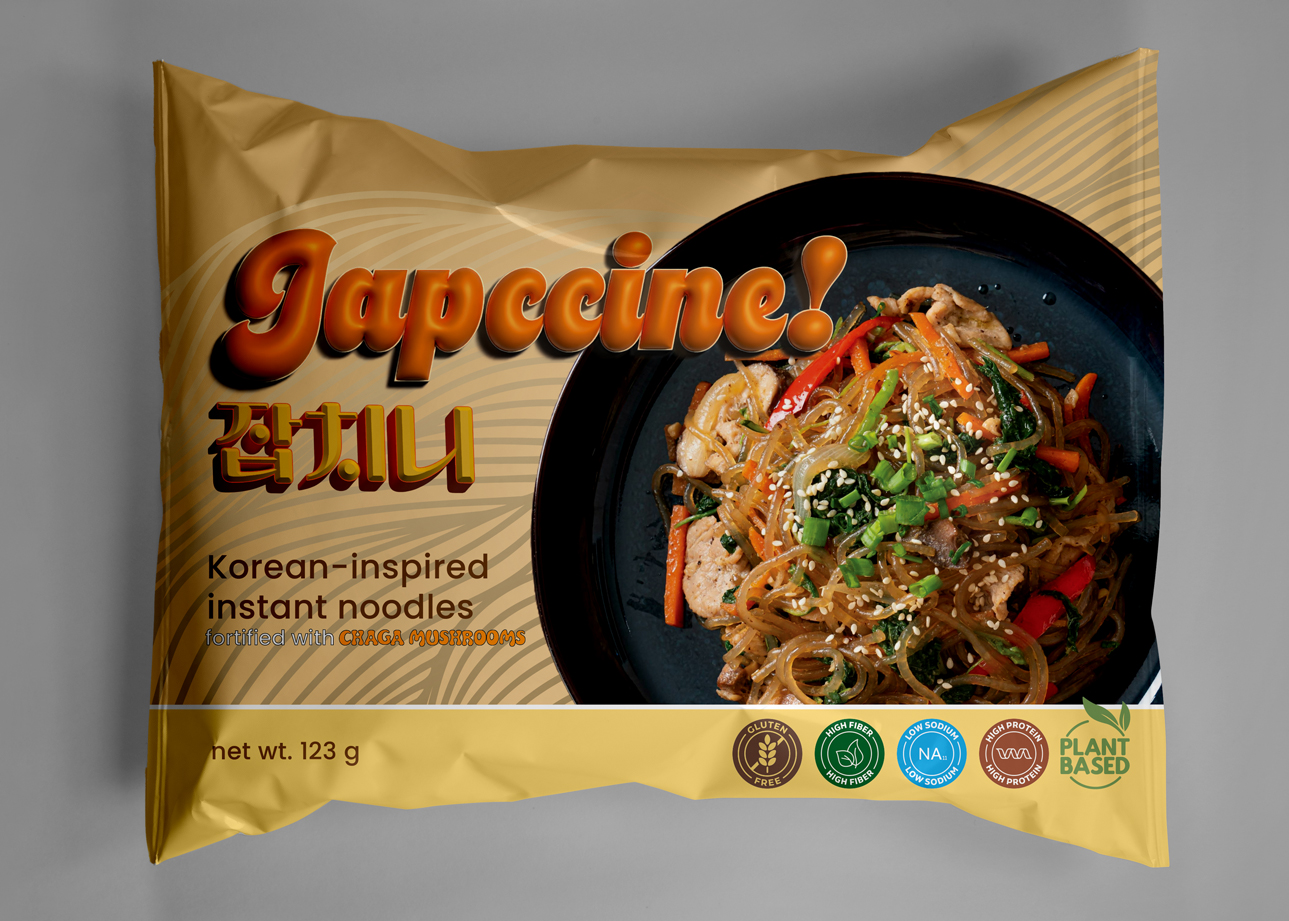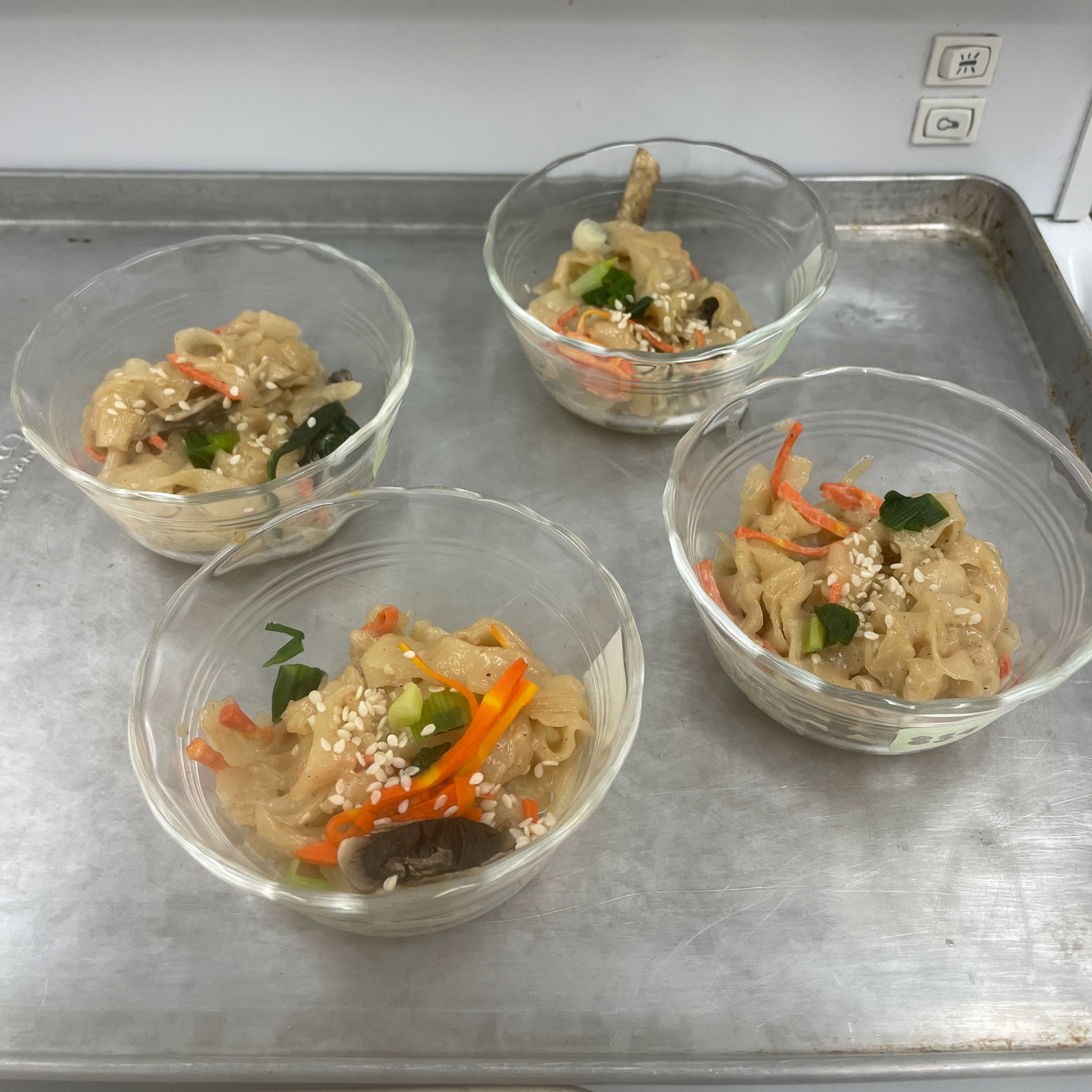A taste of the future of work: experiential learning in food innovation
Joyce Yu - 7 May 2024

Team Japccine, including Eric Cheng, Tienna Deitsch, Kirti Joshi, Catherine Lelis and Becky Wong, pose with their creation in NU FS 450.
Five newly invented dishes are circulating the room. The audience is being served samples that range from a moist and fluffy protein-packed instant chocolate cake to a freeze-dried smoothie that's high in nutrition with a satisfying crunch and mouth feel. Is this the setup for a new Netflix cooking competition? Not exactly. But, there are presentations of unique food creations, a panel of judges and prize money to be won. These thoughtfully crafted products are the efforts of students in the Nutrition and Food Sciences (NU FS) 450 - Food Product Development.
For many grads taking the first step in their career, they are met with a common challenge: employers want prior experience even for entry-level jobs. But, how can someone gain experience if no one hires them? This is where the NU FS 450 course steps in. They are bridging the gap between the classroom and what students can bring to future employers. “The students have the opportunity to solve some real-world questions by applying their knowledge while the industry gains knowledge, solutions, and potential work-force,” says Jianping Wu, Professor of Agricultural, Life & Environmental Sciences and primary instructor of NU FS 450.
Ever wonder how your favourite snack was created? NU FS 450 students can tell you. Throughout the course, students integrate their knowledge gained from different disciplines including food chemistry, nutrition, sensory evaluation, microbiology and packaging. Their main task is to develop their own food products as part of their capstone assignment. However, beyond the assignment, the main goal of the course is to offer students the chance to apply classroom concepts and processes in a real-world setting.
In a friendly competition for a $2,500 prize sponsored by Top Health Ingredients (THI), student teams presented their innovation food creations to fellow students and a panel of judges comprised of THI staff, including Judy Yeung (QA & Scientific Affairs), Angela Billingsley (Quality Assurance Coordinator) and Larry Sarabin (CEO). Each team discussed the motivation for their initial product concept, how they included ingredients provided by THI, how they problem-solved quality assurance and presented marketing strategies and packaging design.


Each product was based on market research for how the product would address a pain-point for their consumer and an environmental scan of their competitors. In addition to offerings like the instant chocolate cake and freeze-dried smoothie melts, students also showcased protein-enriched fruit-based popsicles, bubble tea enhanced with pea protein pearls and a plant-based version of instant japchae called Japccine. Judges evaluated each team’s product choices, use of ingredients, scalability, and market potential. As Wu notes, “this event reflects a shift in education toward work-integrated learning, where students gain real-world skills before graduating.”
The Food Product Development course equips students with the skills to thrive in their careers upon graduation. Work-integrated learning opportunities provide students with real-world experience and be career-ready even before they leave the classroom. Students also have the unique opportunity to experiment, fail and learn from challenges in a supportive environment. Working with an industry partner like THI provides students with mentorship and a better understanding of the supply chain and how they can apply their food science skills in different career paths.
In addition to gaining hands-on experience in product development, students also gain essential workplace skills like project management, time management, budgeting and team collaboration. By the end of the course, students leave with a strong portfolio piece showcasing their ability to conceptualize and strategize a new food product from start to finish.

So, which food product took home the winning prize? Japccine! Upon reviewing the students final reports, Judy Yeung from THI shared that they were impressed by the complexity and thoroughness of the students’ research. “The final product is portable, very presentable and aligns with the current trends. They tackled multiple challenges within a short period of time ranging from noodle texture to sauce thickness and vegetable size,” she remarks. Congratulations to Eric Cheng, Tienna Deitsch, Kirti Joshi, Catherine Lelis and Becky Wong!
While there was only one winning team in this competition, every student is better prepared to hit the ground running after graduation. So, could a Netflix appearance be on the horizon? Never say never. But, they are readier than ever.